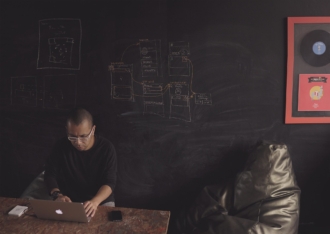The human race is out-doing itself.
We’re faster, smarter, stronger, more emotionally-intelligent and artistically-gifted than ever before.
Take a look at any profession in the world today.
From music to maths to track running, the previously-impossible is being achieved every day.
Where does this continuous, steep upswing in the standards of excellence come from?
No, there hasn’t been a surge of extraordinarily talented people being born.
The myths of mastery
How long does it take to become a master of your craft?
Is talent something you’re born with, or something you acquire through learning?
And what do highly-skilled people do differently from the rest of us mortals?
Researchers have been searching for answers to these questions for decades. And recently, they made a surprising discovery.
The crème de la crème — or ‘expert performers’, as they’re officially known — all have something in common.
(And it’s not 10,000 hours.)
Debunking 10,000 hours
In Malcolm Gladwell’s 2008 book, Outliers: The Story of Success, he pinpoints 10,000 as the ‘magic number’ of hours a person needs to devote to their craft to become an expert.
He cites people like Bill Gates and the Beatles, who famously invested vast amounts of time to sharpen their skill-set.
His theory is based on the research of Dr. K. Anders Ericsson, a professor of psychology who has pioneered the study and science of peak performance.
But Ericsson does not entirely agree with Gladwell’s conclusions. In fact, he calls them:
“… a popularised but simplistic view of our work … which suggests that anyone who has accumulated a sufficient number of hours of practice in a given domain will automatically become an expert and a champion.”
According to Ericsson, becoming an expert in something isn’t just a matter of clocking up thousands of hours. What distinguishes a virtuoso violinist or an Olympic athlete from the rest of us is how they spend these hours.
Enter deliberate practice.
Deliberate practice is focused, consistent, goal-oriented training. It favours quality over quantity. It knows not all practice is created equal.
Natural talent is overrated

There’s a common assumption that talent is something we are, or aren’t, born with.
But Ericsson believes that genetics play less of a role than we think.
Take Mozart. Almost anyone would consider him to be a musical genius. But according to Ericsson,
“If you compare the kind of music pieces that Mozart play at various ages to today’s Suzuki-trained children, he is not exceptional. If anything, he’s relatively average.”
He claims that Mozart achieved mastery, not due to inherited talent, but because he practiced long and hard from a very young age.
“The belief that one’s abilities are limited by one’s genetically prescribed characteristics….manifests itself in all sorts of ‘I can’t’ or ‘I’m not’ statements.”
So is a conviction that we lack the necessary talent the only factor holding us back from being the next Steve Jobs?
Not quite.
There is significant evidence to show that working memory is heritable, and that cognitive ability as a child plays a role in adult achievement.
But no matter a person’s genetics, expertise can’t be built without working hard — and smart — over many years.
Why regular practice isn’t enough
Typically, repeated practice takes us up to a medium level of success. After an initial spike, progress stalls, plateaus — then grinds to a halt.
Because when you reach an average level of competence, your ability stops being a work-in-progress and starts being a reflex.
That’s why repeating a skill regularly over many years alone — cooking, driving, exercising — doesn’t lead to expertise.
You’re maintaining a skill, not building on it.

And for most areas in our lives, a baseline level of skill is enough. But if we want to truly excel, we have to push past this complacency and out of our comfort zone.
People who continually improve never slump into auto-pilot.
Instead, they keep taking apart the pieces of their skill and putting them back together to create something better.
Rather than treading water, they take their practice to the edge of their ability, and then step (or leap) beyond it.
The five-hour rule
Author and entrepreneur Michael Simmons discovered a common denominator that ties in with Ericsson’s research.
Simmons refers to this as the ‘five-hour rule’: one hour, each weekday, devoted to highly-concentrated learning.
And it’s these consistent, intense bursts of effort that sets them — and other highly-accomplished people throughout history — apart.
Benjamin Franklin kept a strict daily schedule and set aside time for focused learning, reflection and reading. He tracked his progress and set small goals.
Theodore Roosevelt devoted a couple of hours each day to intense study, a habit he started at university and continued into his US presidency.
Elon Musk is known for his deep commitment to learning and self-improvement, and often reads two books a day.
Sounds a bit more manageable than the 10,000-hour rule, doesn’t it?
But it’s not always easy.
Deliberate practice makes perfect
Performing skills you already know is satisfying — but this won’t enhance your skill level.
So, deliberate practice isn’t just about continued repetition.
It’s structured. It’s thoughtful. It’s strategic.
You aren’t just mindlessly practicing. You’re intensely engaged. You’re teetering on the edge of what you are and aren’t capable of doing.
It shouldn’t feel comfortable.

Like a rubber band, you’re constantly stretching yourself to your outer limits. There needs to be constant pressure and impetus for change.
And if you aren’t clearly moving forward with one technique, you go back to the drawing board.
In other words, if you achieved something yesterday, you must do more than achieve it again today.
There’s no standstill.
That’s how growth happens.
Deliberate practice in 4 steps
Developing proficiency in any skill is not always fun, or even enjoyable.
I’ve learned this firsthand over the 12 years (and counting) it took me to build my company, Jotform.
I’ve been with my product, fed up with myself and fed up with grappling with yet another issue.
What’s made me hang in is visualizing where the time I spend developing a new or greater understanding will take me.
And by listening to my resistance instead of fighting it, I was able to grow Jotform to almost 4 million users without any outside funding.
Still, to push through these feelings, day in, day out, you’re going to need to build smart systems to support you.
Here’s how to get the ball rolling.
1. Set small goals
You need to keep your eyes firmly on the prize to keep up momentum.
That’s why wishy-washy goals like ‘getting better’ won’t be compelling enough to propel you past your current abilities — on their own, at least.
And as I’ve written before, lofty goals will intimidate — and throw you off track.
The alternative? Bite-sized, clearly-defined, achievable steps in the right direction.
Small goals are the foundation of deliberate practice. They should take into account your current knowledge and push your limits, little by little, towards meaningful change.
This means distilling your general, long-term goal — improvement — into a series of concrete building blocks.
Long-term goal: become an expert runner
Medium goal: run the 2019 marathon
Small steps to get there: reduce your running time by 5 minutes every week.
Identify the main areas for change. Write them down. Make a checklist. Rooting goals in specificity will encourage action. Once you have a clear system in place, everything else will slot into place.
2. Be consistent
Prolonged, sustained effort is often uncomfortable or frustrating. And that’s the whole point.
Deliberate practice isn’t necessarily enjoyable: you’ll need to sacrifice short-term pleasure for long-term success.
This dilemma applies to most things in everyday life. Take me as an example.
When people ask me how I was able to grow Jotform to a company of 110 employees without any investment, many of them want me to talk about passion or tell inspiring stories.
The truth is, I’ve never been super passionate about building forms. I didn’t follow my dreams.
I just showed up and put in the boring work every single day over the last 12 years while I watched countless competitors enter & leave our market.
It wasn’t always fun, especially when you try to build your startup in one of the most competitive industries around – online forms. Even Google Forms stepped into the ring and remains one of our toughest competitors.
But it’s pushing through this frustration that leads to significant improvement. It’s getting on with it especially when you’re too tired and can’t be bothered.

Deliberate practice is only effective because of its regularity.
So commit to your hour per day, and protect it at all costs. Soon, action will become a habit and there will be no decision left to make. That’s where the magic happens.
3. Track and measure
To progress in any area, you need to pinpoint your strengths and weaknesses to identify problems and solutions.
How many stories are you publishing per week?
How many miles are you running?
Be methodical, and keep track of your progress every day.
It’s also crucial to seek out regular feedback: from existing experts and peers as well as through self-assessment. An honest perspective is essential for gaining a realistic view of your progress.
Write it down. Record it. Measure it. Repeat.
4. Recharge
Deliberate practice requires your full, undivided, 1000% attention. That’s why it can only be sustained for short periods.
Experts have capped optimal practice time at one hour per day, three-to-five days a week, with reduced benefits after two hours.
So keep it short and sweet, however tempting it might be to push on when you feel like you’re nailing it. Set an alarm, and be strict with yourself to duck out when the hour is up.
Why? You need to recharge.
Extreme focus is a tough mental workout, and you’ll only feel its benefits if you give yourself time to recover. Counteract the intensity of deliberate practice by doing nothing at all.
Your body, and your brain will thank you.









































































Send Comment:
5 Comments:
More than a year ago
Great article. I always want to see fast results, if not, I get irritated and stop doing that task. This article made me think twice about my practise and not to aim for the short term!
More than a year ago
Nice article ! I really like the way of your writing skills.
More than a year ago
very nice tips given by you. I really like this. already i read an article like this at timesera
Thanks for sharing
More than a year ago
Hey Aytekin,
Thanks for a meaningful post. I admit consistency matters but how to be consistent with a job you don't like? How did you build that skill?
Sadaf
More than a year ago
I’ve always wondered about the intensity of training and daily commitment
Easy-Up Jim